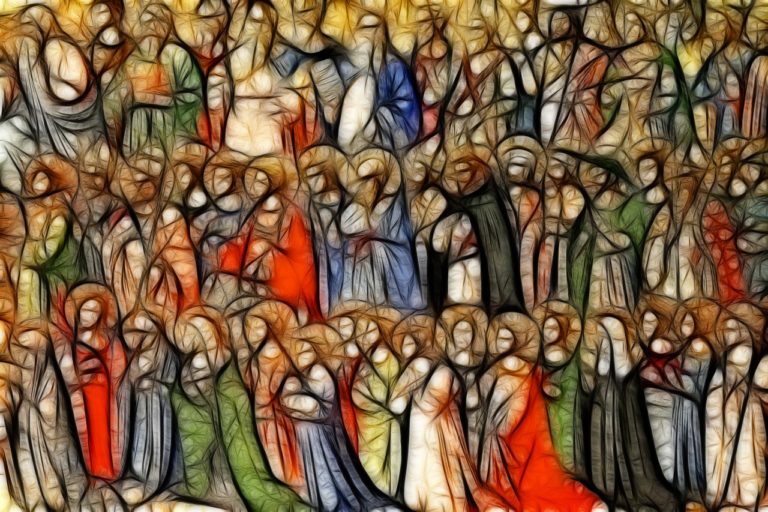Great faith is not some higher level of conviction. It is believing something that is harder to believe, something that is contrary to what most people believe. Faith is the assurance that the things revealed and promised in the Word are true, even though unseen, and gives the believer a conviction that what he expects in faith, will come to pass.
Having faith is having trust. You have to trust with your entire being that God has your back that he will help you and take care of you. He knows what is best, but to truly embrace what he has planned for you, you have to fully trust. Our trust is not foolish, for our God is both faithful and good.
Jesus healed the Blind, Dead, Sick, Crippled, paralyzed man, because of their faith. This teaches us to have faith.
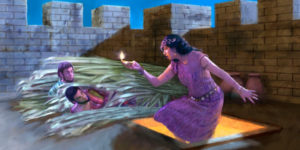
RAHAB HELPS THE ISRAELITE SPIES
Joshua 2
According to the book of Joshua, when the Hebrews were encamped at Shittim, in the “Arabah” or Jordan valley opposite Jericho, ready to cross the river, Joshua, as a final preparation, sent out two spies to investigate the military strength of Jericho. The spies stayed in Rahab’s house, which was built into the city wall. The soldiers sent to capture the spies asked Rahab to bring out the spies. Instead, she hid them under bundles of flax on the roof. It was the time of the barley harvest, and flax and barley are ripe at the same time in the Jordan valley, so that “the bundles of flax stalks might have been expected to be drying just then”.
Rahab, a prostitute of the Canaanite city of Jericho, is known for helping the Israelites defeat the pagan city of Jericho and for her place in the lineage of Jesus Christ. Rahab’s story begins during the invasion of the city of Jericho by the Israelites.
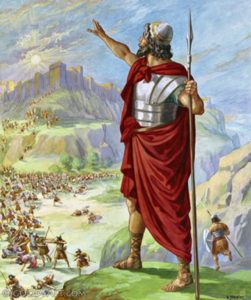
JOSHUA, MILITARY STRATEGIST
Joshua 3, Joshua 6
Joshua was the personally appointed successor to Moses and a charismatic warrior who led Israel in the conquest of Canaan after the Exodus from Egypt. God chose Joshua to lead Israel after the death of Moses because Joshua showed he had faith in God.
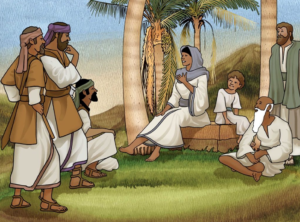
DEBORAH, A WOMAN OF POWER AND JUDGEMENT
Judges 4, Judges 5
It is stated that Deborah was a prophet, a judge of Israel, and the wife of Lapidoth. She rendered her judgments beneath a date palm tree between Ramah in Benjamin and Bethel in the land of Ephraim. Barak declines to go without the prophet. Deborah helped lead the Israelites against the Canaanites, who had been oppressing the Israelites for twenty years. Inspired by God, Deborah aided Barak, a male military leader to lead the armies of Israel to Mount Tabor in an all-out assault on the Canaanites
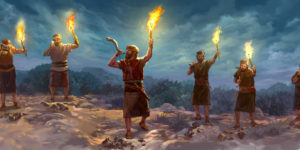
GIDEON, THE CONQUEROR
Judges 6:11-8:32
As is the pattern throughout the Book of Judges, the Israelites again turned away from Yahweh after 40 years of peace brought by Deborah’s victory over Canaan, and Midianites, Amalekites, and other Bedouins peoples harried Israel for seven years. God chose Gideon, a young man from the tribe of Manasseh, to free the people of Israel and to condemn their idolatry
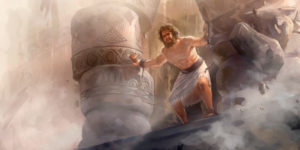
SAMSON, A MAN OF GREAT STRENGTH
Judges 13-16
Samson’s story illustrates how God wants to enable us to fulfill the calling he’s given us. Samson could only further his mission as God gave him strength. Without that strength he could do nothing; with it, he was completely unstoppable. Samson was a legendary Israelite warrior and judge, a member of the tribe of Dan, and a Nazirite. His immense physical strength, which he used for 20 years against the Philistines, derived from his uncut hair.
Samson said, humbly, “Sovereign Lord, remember me. Please God, strengthen me just once more, and let me with one blow get revenge…let me die with the Philistines.” He put his hands on the two columns that supported the temple and God gave him the strength to push them apart.
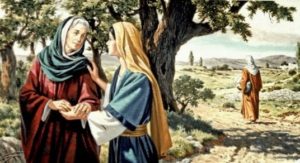
RUTH, A WOMAN OF LOYALTY AND DEVOTION
Ruth 1, Ruth 2, Ruth 3, Ruth 4
Ruth, a biblical character, is a woman who after being widowed remains with her husband’s mother. Her story is a symbol of abiding loyalty and devotion. Where you die, I will die—there will I be buried.” Ruth accompanies Naomi to Bethlehem and later marries Boaz, a distant relative of her late father-in-law.
Boaz not only noticed Ruth’s beauty, inside and out but also admired her loyalty to her mother-in-law. Ruth showed respect and honor to her mother-in-law and God. She worked hard in the field to provide food for them. Ruth proved to be a woman of integrity with Boaz.
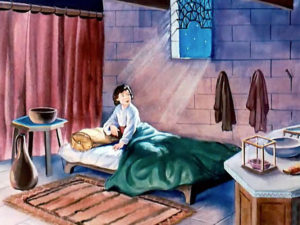
SAMUEL, A PROPHET WHO LISTEN TO GOD
1 Samuel 1-03, 1 Samuel 7-10, 1 Samuel 12, 1 Samuel 15, 1 Samuel 16
The prophet Samuel (ca. 1056-1004 B.C.) was the last judge of Israel and the first of the prophets after Moses. He inaugurated the monarchy by choosing and anointing Saul and David as kings of Israel. Samuel was the son of Elkanah and Hannah, and he was born at Ramathaim-zophim in the hill country of Ephraim. Samuel is a figure who, in the narratives of the Hebrew Bible, plays a key role in the transition from the period of the biblical judges to the institution of a kingdom under Saul, and again in the transition from Saul to David. He is venerated as a prophet by Jews, Christians, and Muslims.
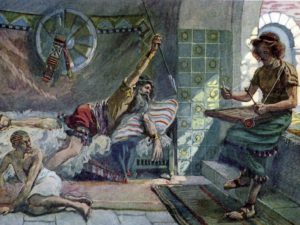
SAUL, ISRAEL’S FIRST KING
1 Samuel 8-11, 1 Samuel 13, 1 Samuel 15, 1 Samuel 28, 1 Samuel 31
In the Book of Samuel, Saul, the first king of Israel, failed to reach a decisive victory against an enemy tribe, the Philistines. God sent the Prophet Samuel to Bethlehem and guided him to David, a humble shepherd, and talented musician. The Israelites begged Samuel for the appointment of a king to rule over and lead them, and God rewarded them with Saul as a king.
The first king of Israel, Saul succeeded in freeing Israel of its enemies and extending its boundaries. He fought successfully against the Philistines, Ammonites, Moabites, Edomites, Arameans, and Amalekites. He also succeeded in drawing the tribes of Israel into closer unity.

DAVID, THE SHEPERD KING
1 Samuel 16-17, 1 Samuel 29:1-30, 1 Samuel 25
David is described in the Hebrew Bible as king of the United Monarchy of Israel and Judah. In the Books of Samuel, David is a young shepherd who gains fame first as a musician and later by killing the giant Goliath, champion of the Philistines. He becomes a favorite of King Saul and a close friend of Saul’s son Jonathan. Worried that David is trying to take his throne, Saul turns on David and tries to kill him, leading the latter to go on the run and operate as a fugitive for several years. After Saul and Jonathan are killed in battle against the Philistines, a 30-year old David is anointed king over all Israel and then conquers Jerusalem, establishing the city as his capital, and taking the Ark of the Covenant into the city to be the center of worship in the Israelite religion.
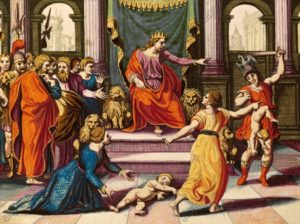
SOLOMON, THE WISE KING
1 Kings 2:12-11:43
Solomon also called Jedidiah, a fabulously wealthy and wise king of the United Kingdom of Israel who succeeded his father, King David. The conventional dates of Solomon’s reign are about 970 to 931 BCE, normally given in alignment with the dates of David’s reign. He is described as the king of the United Monarchy, which broke apart into the northern Kingdom of Israel and the southern Kingdom of Judah shortly after his death. Following the split, his patrilineal descendants ruled over Judah alone. As the builder of the First Temple in Jerusalem, beginning in the fourth year of his reign, using the vast wealth he and his father had accumulated. He dedicated the temple to Yahweh, the God of Israel. He is portrayed as great in wisdom, wealth, and power beyond either of the previous kings of the country, but also as a king who sinned. His sins included idolatry, marrying foreign women, and, ultimately, turning away from Yahweh, and that led to the kingdom’s being torn in two during the reign of his son Rehoboam.
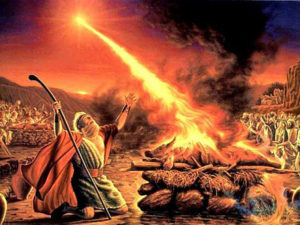
ELIJAH, A GREAT PROPHET
1 King 17-19, 1 Kings 21, 2 Kings 1
Elijah, meaning “My God is Yahweh, according to the Books of Kings in the Hebrew Bible, a prophet and a miracle worker who lived in the northern kingdom of Israel during the reign of King Ahab (9th century BCE). In 1 Kings 18, Elijah defended the worship of the Hebrew God over that of the Canaanite deity Baal. God also performed many miracles through Elijah, including resurrection, bringing fire down from the sky, and entering heaven alive “by fire”. He is also portrayed as leading a school of prophets known as “the sons of the prophets”. Following his ascension, Elisha, his disciple, and most devoted assistant took over his role as leader of this school.
Lord heard the voice of Elijah, and the soul of Elijah’s words proclaim that there is no reality except the God of Israel, there are no other beings entitled to the name of divinity.
Elijah is first mentioned by name in the Bible. It states that he is a Tishbite from Gilead, who visited King Ahab to give him a message from God that there would be no rain in the land until he declared it. In order to avoid the wrath of the king, God told Elijah to hide by the Brook Cherith where he was fed bread and meat by ravens sent from God. After a while, due to the drought, the brook dried up so God told Elijah to go to the town of Sarepta and to seek out a widow that would find him water and food. Elijah learns that the widow has a son and between them, they only have enough flour and oil for one more meal before they die. Despite this, the widow helps Elijah. Because she did this God caused the flour and the oil never to run out. “[The widow had] a handful of meal in a barrel, and a little oil in a cruse … and the barrel of meal wasted not, neither did the cruse of oil fail”. (King James Version).
After this the son of the woman, the mistress of the house became ill. And his illness was so severe that there was no breath left in him And she said to Elijah, “What have you against me, O man of God? You have come to me to bring my sin and remembrance and to cause the death of my son!”
Elijah does not try and rationalize with the grieving woman and takes the son up to his bedroom where he prays to God asking for his help. And he stretched himself upon the child three times, and cried unto the Lord, and said, “O Lord my God, I pray thee, let this child’s soul come into him again”. And the Lord heard the voice of Elijah; and the soul of the child came into him again, and he revived.
He then takes the child downstairs again and presents him, living, to his mother. This causes her to declare “Now by this I know that thou art a man of God”, Elijah therefore “regains his honor and his status.
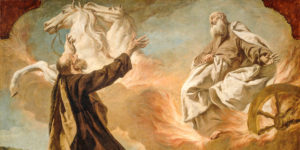
ELISHA, ELIJAH SUCCESSOR
2 Kings 2, 2 Kings 4:1-7:2, 2 Kings 13:14-21
Elisha was the son of Shaphat, a wealthy land-owner of Abel-Jehovah; he became the attendant and disciple of Elijah. A command given to Elijah to anoint him as his successor, Elisha became Elijah’s close attendant until Elijah was taken up into heaven.
In the biblical narrative, he is a disciple and protégé of Elijah, and after Elijah was taken up in a chariot of fire, he gave Elisha a double portion of his power and he was accepted as the leader of the sons of the prophets. Elisha then went on to perform twice as many miracles as Elijah.
Before he settled in Samaria, Elisha passed some time on Mount Carmel. He became noted in Israel, and for six decades (892–832 BC) held the office of “prophet in Israel”. He is called a patriot because of his help to soldiers and kings
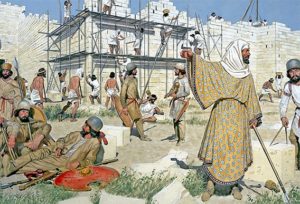
NEHEMIAH, A HEROIC BUILDER
Nehemiah 1, Nehemiah 2, Nehemiah 4
He was more like a house manager who ran the king’s palace. He was distinguished, efficient, and noble and the king loved him. Nehemiah was also a godly man who feared God. … When he heard of the suffering of his people and their shameful situation, he wept, fasted, and took the problem to God.
God instructed Nehemiah to build a wall around Jerusalem to protect its citizens from enemy attacks. You see, God is NOT against building walls! And the Old Testament book of Nehemiah records how Nehemiah completed that massive project in record time — just 52 days.
The Lesson learned from the book of Nehemiah is God’s faithfulness to his word and to his people, even when his people have not been faithful to him. In our lives, confession of our sins often follows a time of difficulty – a time when we realize the seriousness of our sins.
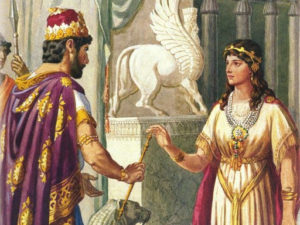
ESTHER, A BRAVE QUEEN
Esther 1, Esther 2, Esther 3, Esther 4, Esther 5, Esther 6, Esther 7, Esther 8, Esther 9, Esther 10
Esther, the beautiful Jewish wife of the Persian king Ahasuerus (Xerxes I), and her cousin Mordecai persuade the king to retract an order for the general annihilation of Jews throughout the empire. The massacre had been plotted by the king’s chief minister, Haman, and the date was decided by casting lots (Purim).
Esther put the will of God to save His people ahead of her own fear and ended up saving an entire nation because of her bravery. Esther bravely disobeyed the law of the land in humble obeisance to her God, the God of all gods and the King of all kings.
Esther remains an example of bravery. She faced fear and did what was right and God was faithful. Through his word, our God still offers us hope, demonstrates his faithfulness, and urges us to be brave.
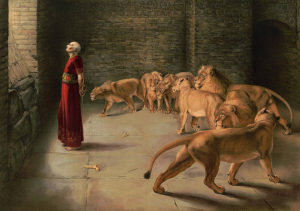
DANIEL, A PROPHET Of COURAGE
Daniel 1, Daniel 2, Daniel 3, Daniel 4, Daniel 5, Daniel 6
The prophet Daniel demonstrated supreme courage by standing up for what he knew to be right and by demonstrating the courage to pray, being a righteous man, had no fear. His main desire was to serve and honor God.
King Darius after the Lion’s Den miracle, “I issue a decree that in every part of my kingdom people must fear and reverence the God of Daniel. “For he is the living God and he endures forever; his kingdom will not be destroyed, his dominion will never end. He rescues and he saves; he performs signs and wonders in the heavens and on the earth.
God does not expect all of us to be able to interpret dreams. However, through the power of the Holy Spirit, all of us can live godly lives. And all of us can ask God to grant us wisdom and the enabling to acquire knowledge. Daniel also teaches us to confront all wrong-doing fearlessly.
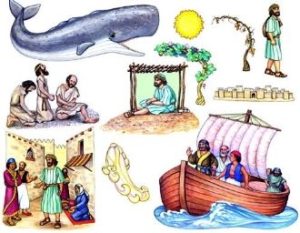
JONAH, THE RELUCTANT MISSIONARY
Jonah 1, Jonah 2, Jonah 3, Jonah 4
A Hebrew prophet named Jonah son of Amittai who is sent by God to prophesy the destruction of Nineveh but tries to escape the divine mission. Jonah is weak and feeble compared to the other prophets because he fears prophesying.
He didn’t want to go to Nineveh because he knew the power of God’s Word. He despises the Lord’s mercy. Jonah knew of the Lord’s love for His creation, and he didn’t want the people of Nineveh to experience God’s forgiveness.
Swallowed by a giant fish, three days later, after Jonah agrees to go to Nineveh, the fish vomits him out onto the shore. Just when Jonah was getting comfortable under the plant, God sent a worm to destroy it. The worm in the story represents Jesus Christ. The Son of God was appointed to nullify the law and make a way for truth, just the worm eliminated the plant and provided a way for the protagonist to teach Jonah a lesson.
